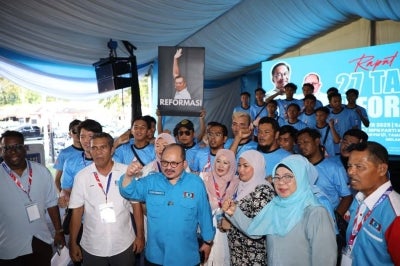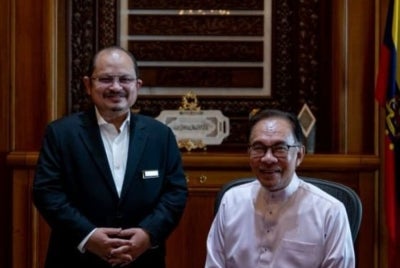Political will necessary to move forward on citizenship laws, former minister says

SHAH ALAM - The country has no political will to move forward on citizenship laws involving children born abroad to Malaysian mothers married to foreigners who are not legally entitled to Malaysian citizenship, a former minister says.
Tan Sri Syed Hamid Albar said there was a disconnect in the current law whereby Malaysian mothers could supposedly register overseas born children at the nearest embassy or high embassy but then the women did not receive any reply for years.
Even worse, this was then followed by rejections of these citizenship applications.
Hamid said this had a lot to do with history and the country’s non-existent political will to change and make changes as time passes.
“I think the disconnect has a lot to do with history and we do not have the political will to change and move with time.
“Malaysian public somehow, other than some noises in the Parliament or arguments, they tend to leave it to the government to decide.
“I think there was less pressure about it because at that time people were not aware of the constitutional rights and they think that it is the function of the government to decide because that is their division,” he said during Wacana English Edition which went live at Karangkraf’s Complex, here, yesterday.
The show entitled ‘Sexist Citizenship Law: What’s Next?’ featured Family Frontiers President Suri Kempe, Batu Kawan MP Kasthuri Patto and impacted mother Rachel Ng as other panellists where they discussed the need for the country to aspire for gender equality by ending sexist citizenship laws.
Hamid further said the current law does not take away the rights of the ministers who lose their discretion to give citizenship to the children born overseas by Malaysian mothers.
He encouraged the ministers to use their political will in order to think of the fairness and justice of the citizenship issue.
In addition, he said the real problem was that the country did not recognise dual citizenship where for those in the United States (US), for example, the child of those who worked in the embassy would be granted automatic US citizenship once they were born and they could choose their citizenship after reaching the majority age.
“After reaching the age of majority, then they have to choose which citizenship they want, at least they have the option whether they want to continue being a Malaysian or not,” he said.
He added that the laws in the country should be harmonised and it should not be justified that men and women have inequality in passing their citizenship to their children.
“I don’t think we should look at the disconnect, but it is about harmonising our law. You must harmonise the laws so that you can give the right to those who deserve it.
“In my view, it is ridiculous if you say men have the right to pass their citizenship, but women don’t,” he added.
Malaysia was also among the 25 countries that discriminate against mothers in their ability to confer nationality on their children including The Bahamas, Bahrain, Barbados, Brunei, Burundi, Eswatini, Iran, Iraq, Jordan, Kiribati, Kuwait, Lebanon, Liberia, Libya, Mauritania, Nepal, Oman, Qatar, Saudi Arabia, Somalia, Sudan, Syria, Togo and United Arab Emirates.
Many have questioned why the sexist citizenship law still exists in the nation despite Malaysia being a member of the United Nations Human Rights Council on October 14, 2021, for the 2022 - 2024 term.
In September 2021, the Kuala Lumpur High Court ruled that these children were entitled to Malaysian citizenship but the government appealed the decision.
On Aug 5, the Court of Appeal in a 2-1 majority decision had ruled that children born abroad to Malaysian mothers married to foreigners are not legally entitled to Malaysian citizenship.
Since the ruling, many parties have called for the government to amend the law to allow equal rights for the mothers of overseas-born children.
However, Minister in the Prime Minister’s Department (Parliament and Law) Datuk Seri Dr Wan Junaidi Tuanku Jaafar said some pros and cons needed to be considered to amend the constitution when it comes to citizenship issue, and that it involved many stakeholders which went beyond the government as it involved the Conference of Rulers.
Download Sinar Daily application.Click Here!















